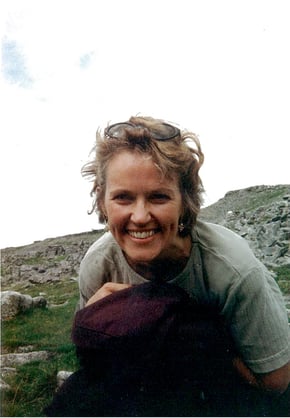William Perry entered the world in 1860 just far enough North to be born into the free state of Indiana. He grew up to be a teacher (as his mother was before him), a principal, a lawyer, a scientist, a poet, a co-founder of a hospital, and a force behind the establishment of Kentucky State University (KSU).
According to a biographical sketch from 1897, Perry passed the examination of teacher at 17, then taught high school for 3 years until he was made principal at the age of 21.
The short biography, published when Perry was 37 years old, described him as “an upright Christian, and an honorable, dignified, courteous gentleman... proving true to every trust” placed in him. It reported that he obtained a law degree and was pursuing his interests in science and also highlighted his public accomplishments, from President of the Louisville Teachers’ Association (and later the State Teachers’ Association) to the Orphans House of Louisville.
Perry’s interest in science came to fruition in 1908 when he became the first African American to obtain a medical license. He then co-founded the Louisville Red Cross Hospital, where he continued to teach Nursing courses after his “retirement.” For more on Perry's life, click here.
To celebrate the establishment of KSU in 1887, which at the time was called the Kentucky State Normal School for Colored Persons, he wrote a poem which included the following:
And we would learn of Thee; Thou art the cause
Of all our joys, and these Thy wondrous laws,
Deep-written in Thy works, that here abound,
Proclaim Thy wisdom matchless and profound.
Where'er we look, where’er we turn we find
New evidence of Thy creative mind
Throughout creation, wheresoe'er we scan,
Proofs of Thy goodness both to beast and man
All testify of Thee; our spirits yearn
To know Thee more; and in Thy works discern
Thy truths—from Thee this lesson gain,
How we may, beings noblest, heights attain.
According to a post by Christopher Graney, author at the Vatican Observatory:
The poem suggests that Perry had an inclination toward science, and that Perry thought of science as the study of the works of God—much like Johannes Kepler, another person given to poetic writings about science and God.
As Graney concludes in another post:
[Perry] put his abilities and his scientific interests to work—not in the same way Kepler and Newton did, but science was still his business. And Perry is just one person, in one town, who I happened upon by accident.
It is obvious that this incredibly talented and well-educated man used all of his gifts—academic, personal, and spiritual—in the service of God and neighbor. Even if his were not the groundbreaking accomplishments of believer-scientists, William Perry’s energetic witness to the power of belief in God and love of truth is an inspiration to all who aspire to an integrated view of faith and science.
Read Also:
Catholic Scientist Receives Recognition 90 Years Later
Who can do Science? Who has done Science.
Vatican Observatory Celebrates Fr. Angelo Secchi, the Father of Astrophysics

